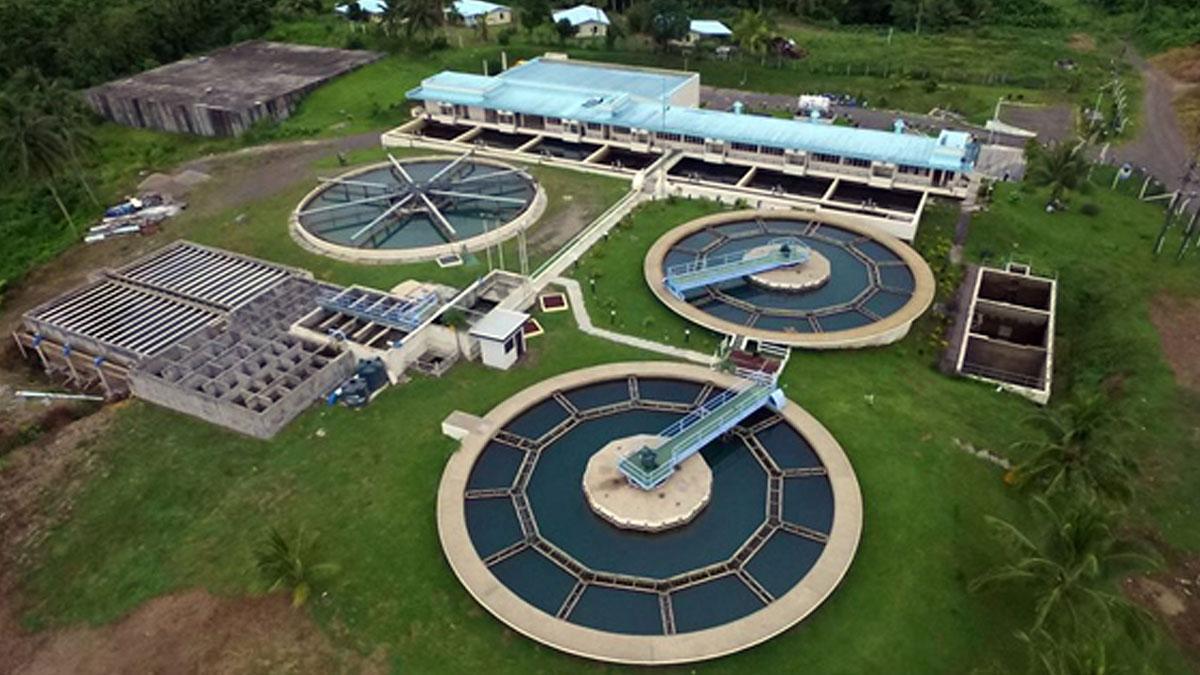
As majority of the people in the Lami-Suva-Nausori corridor continue to face water disruptions daily, the Water Authority of Fiji CEO Dr Amit Chanan says they have a daily production capacity of 170 million litres while the demand now is 173 million litres daily.
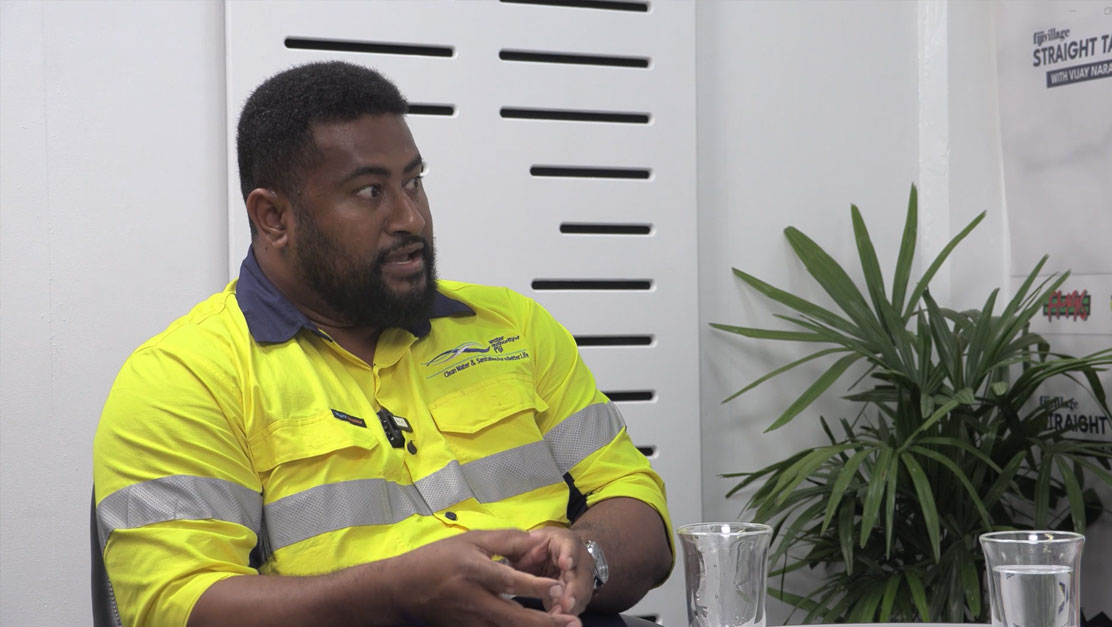
A 3 million litre water treatment plant will soon be installed in Navua to meet the increasing demand for water supply for the Navua and Pacific Harbour residents.
This has been highlighted by Water Authority of Fiji Chief Operating Officer Seru Soderberg on the fijivillage Straight talk with Vijay Narayan after a resident from Hibiscus Drive in Pacific Harbour, David Jones raised concerns that they face constant low water pressure or no water supply.
Soderberg says there is a shortage in production due to high demand from customers.
He says there is also an issue of turbidity at the Nayani and Navua intake due to clogging especially during rainy weather which leads to a shortfall in production.
The Chief Operating Officer also says the main dam in Navua currently provides 1 million litres of water a day and installing the water treatment plant will increase the supply by 2 million litres a day.
WAF Chief Executive Officer Dr Amit Chanan says this is expected to be completed in 18 months which will also supply some security for the next 10 years to meet the future demands as well.
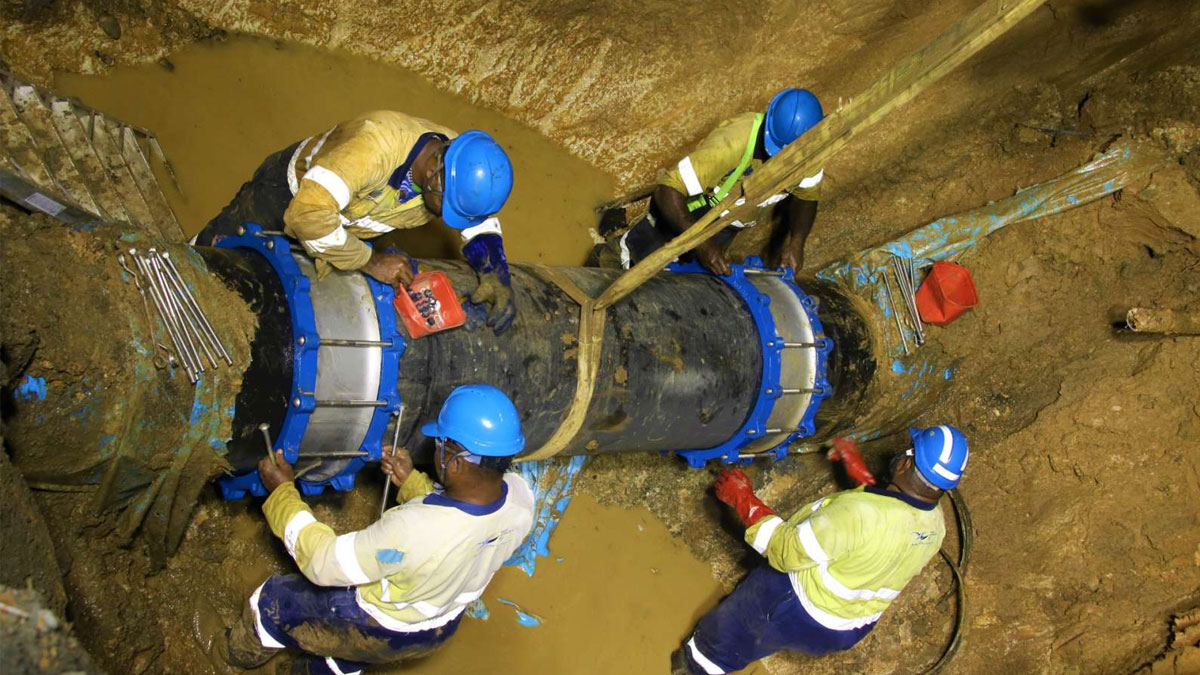
More than 100 qualified staff have left WAF for overseas market – WAF CEO
Losing skilled professionals to overseas markets is a major problem that Fiji needs to look into and the Water Authority of Fiji is not spared from this as the CEO, Dr Amit Chanan, revealed that more than 100 technical qualified staff left the organisation since he got the CEO job.
While speaking on fijivillage Straight Talk with Vijay Narayan, a worried Dr Chanan says this is a big issue for the organisation because they cannot chain people to their desks as it's a free market economy.
He says it is hard for them to compete with the salary levels of Australia and New Zealand, but they are investing in knowledge management and in-house training programs to deal with this issue.
He also highlighted that they need to create relationships with contractors or service providers who have the expertise they need, so if there is a need to find an expert, it's available.
WAF Chief Operating Officer Seru Soderberg says the biggest challenge for them is competing with Australian and New Zealand markets as they have a more lucrative deal than what WAF provides.
He says most of the people that have left the organisation are experienced people.
He also highlighted that one of the main impacts of people leaving the organisation is the lack of manpower.
He adds to cover for this, they are conducting a recruitment drive where all those that will join the organisation will undergo training.
Watch the full Straight Talk video here:
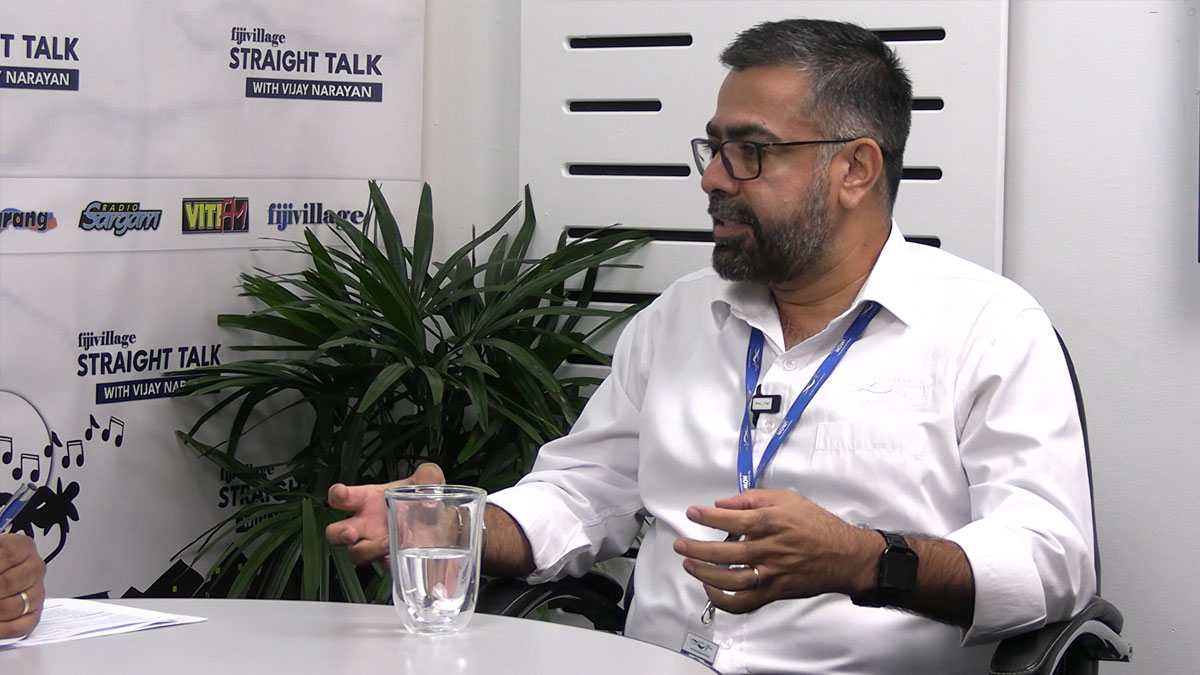
Water Authority of Fiji CEO Dr. Amit Chanan says no ‘if’s’ or ‘buts’, under-investment is primarily the reason why we got here and there is a serious need to invest in our water infrastructure.
While speaking on fijivillage Straight Talk with Vijay Narayan, Dr. Chanan says for every 100 kilometres of water pipes, the global benchmark for burst mains is 13 but Fiji has more than 200 which is multiple times more than the global benchmark.
He says with the leaks they have, they lose close to $23 million just by the sheer fact that they have invested in chemicals, treatment, pumping and electricity and all that water gets lost.
Dr. Chanan says the only way to fix it is to invest in non-revenue water reduction plan.
He says right now, on their existing workforce and budget, the number of leaks they can fix is less than the new ones appearing so if they keep doing the same, they will never be able to catch up.
When asked if we have had band-aid solutions over the past years, Dr. Chanan says there is no point thinking about the past as they do have a solution which is support from the Asian Development Bank where they are going out to the market to get some global expertise to help catch up and make sure the network is secure and not leaking like a sieve.
Dr. Chanan says if they can get that investment right, and put in place a performance based contract, then they will be able to fix it.
He adds there are other utilities in the world who have been in similar situations and with the right investment and expertise, they were able to fix it in five years and Fiji can do the same.
WAF Chief Operating Officer, Seru Soderberg says there are about 4,000 kilometres of pipelines around Fiji and a significant volume of that asset is either asbestos concrete or old PVC pipes that have been in operation for about 20 to 30 years.
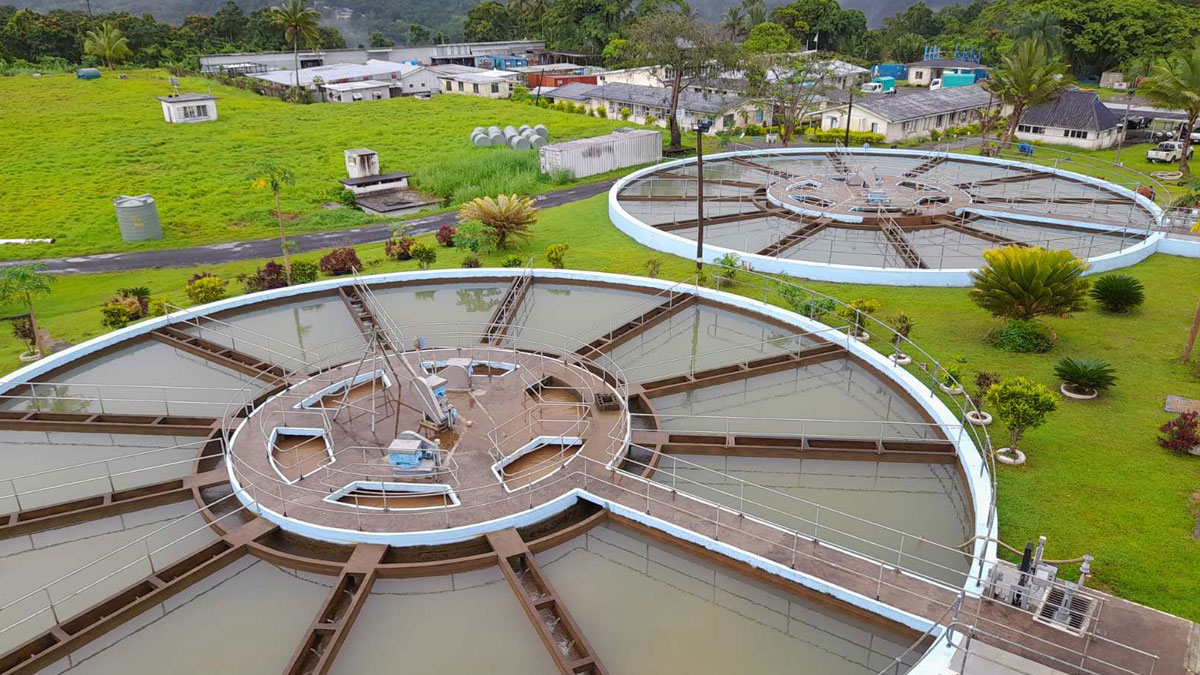
The Water Authority of Fiji will look at options to work with Police if people are not adhering to the prohibition notice in place.
While speaking on fijivillage Straight Talk with Vijay Narayan, WAF CEO, Dr. Amit Chanan says the legislation does allow them to take prohibition notice to the next level, in terms of fining and potential prosecution but their appeal is to make sure that everybody takes heed of the situation and respond to what they are asking.
He says their expectation and hope is that people will listen to the message and work together.
Dr. Chanan says he is reminding everybody to be part of the solution, avoid outdoor water use like washing cars and driveways while we are going through this dry spell.
WAF Chief Operating Officer, Seru Soderberg says he has received concerns from people who say their neighbours have been using water blasters.
Soderberg says he has been explaining to them about the prohibition notice and why it is important to conserve water because a significant number of people do not get water supply 24 hours a day.
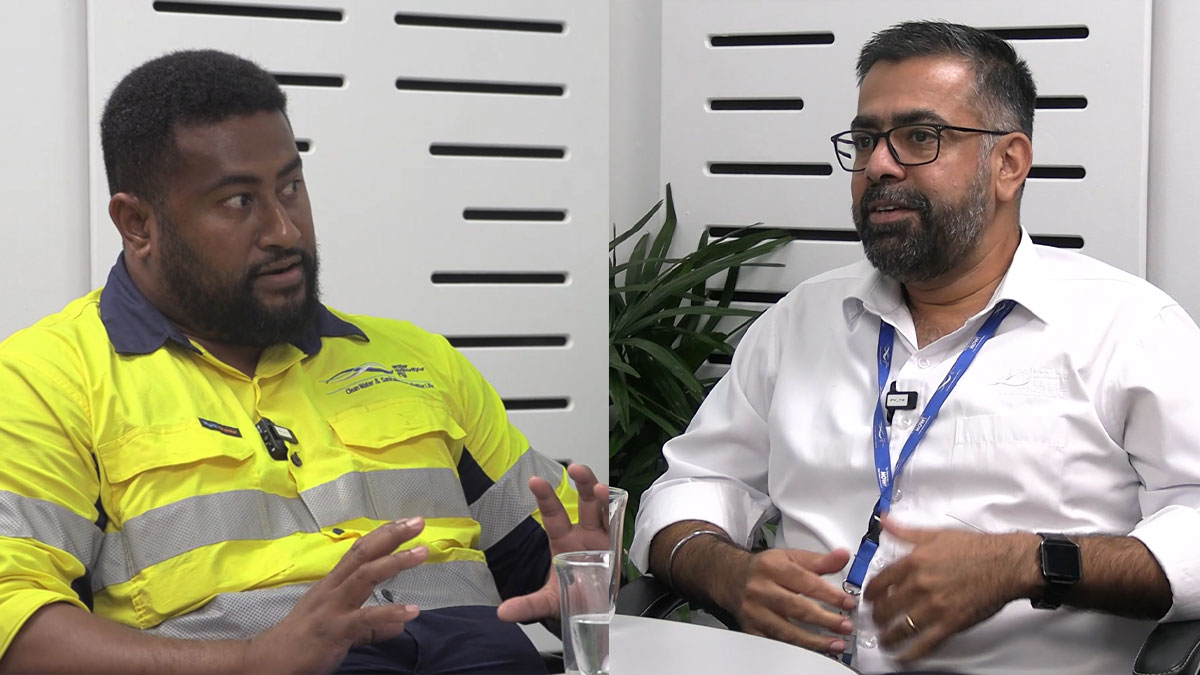
The Water Authority of Fiji is in the process of developing a performance based contract to get some international expertise to work with and complement the Operation’s team in dealing with leaks after the CEO, Dr Amit Chanan, revealed that right now, we are losing about 60 million litres of water in leaks in a day.
While speaking on fijivillage Straight Talk with Vijay Narayan, Dr Chanan says their non-revenue water team budget is $3.5 million, and they need in access of $9 million to be able to stay at pace with fixing the rate at which those leaks are appearing.
He says they will be doing the performance base contract in 3 to 5 years, and the idea is to ramp up the focused effort on reducing leaks, and once we caught up, we can sustain it on an ongoing basis.
Dr Chanan says investment priority sometimes get forgotten when dealing with leaks, as most people only think about leaks when there is no water in their tap.
He adds if there were no leaks, Fiji would not have a water problem.
WAF Chief Operating Officer Seru Soderberg says it is a tough ask to reduce 47 percent of leakages as it’s a slow and steady process that will take a few years.
Soderberg had earlier highlighted that in Fiji for every 100 kilometres of pipelines, there are 300 leaks and for the same 100km of pipelines, they found 200 bursts.
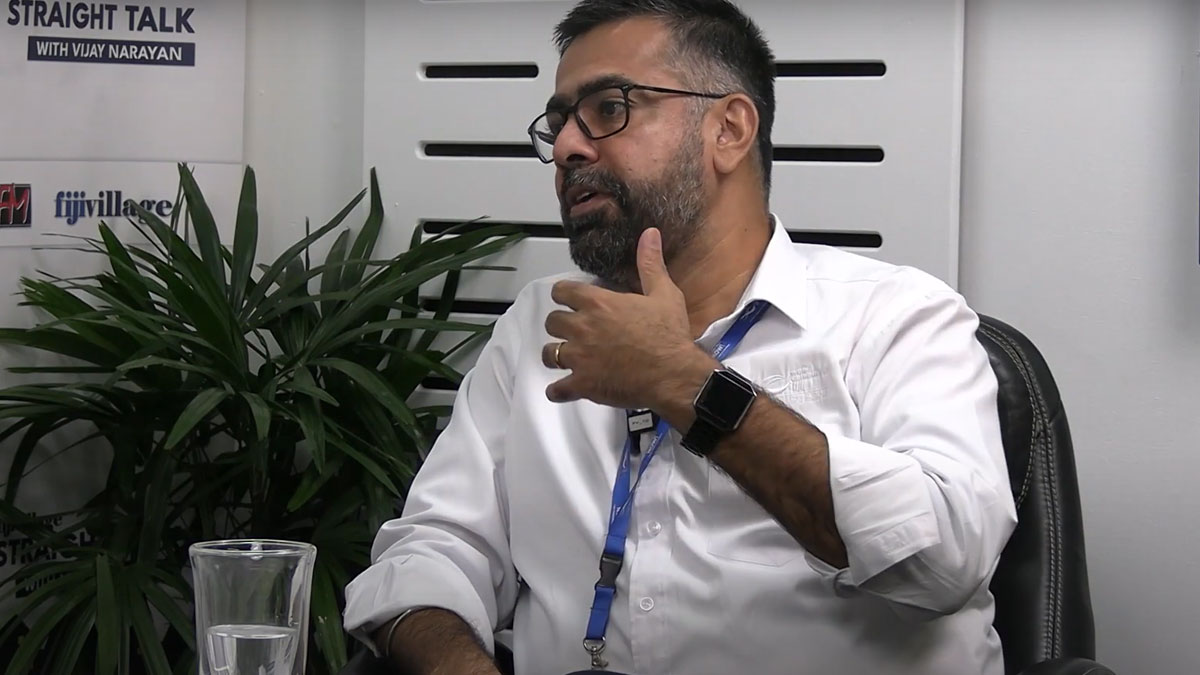
As majority of the people in the Lami-Suva-Nausori corridor continue to face water disruptions daily, the Water Authority of Fiji CEO Dr Amit Chanan says they have a daily production capacity of 170 million litres while the demand now is 173 million litres daily.
While speaking on fijivillage Straight Talk with Vijay Narayan Dr Chanan says the best case scenario is a daily gap of 3 million litres which they are only able to compensate by having intermittent supply in some areas, so that everyone can get water.
Dr Chanan says what we are dealing with is unusually dry weather.
The CEO further says when the water supply was built for Suva - Nausori , the weather pattern in the East was so distinct that there was reliable wet weather.
Dr Chanan says for the West , they knew there is a period between April to November when it is going to be dry and they built a dam.
He further says in the East, there is no dam.
Doctor Chanan also reveals that 60 million litres of produced water is lost through leaking pipes daily.
You can watch the full Straight Talk interview here:
Stay tuned for the latest news on our radio stations

